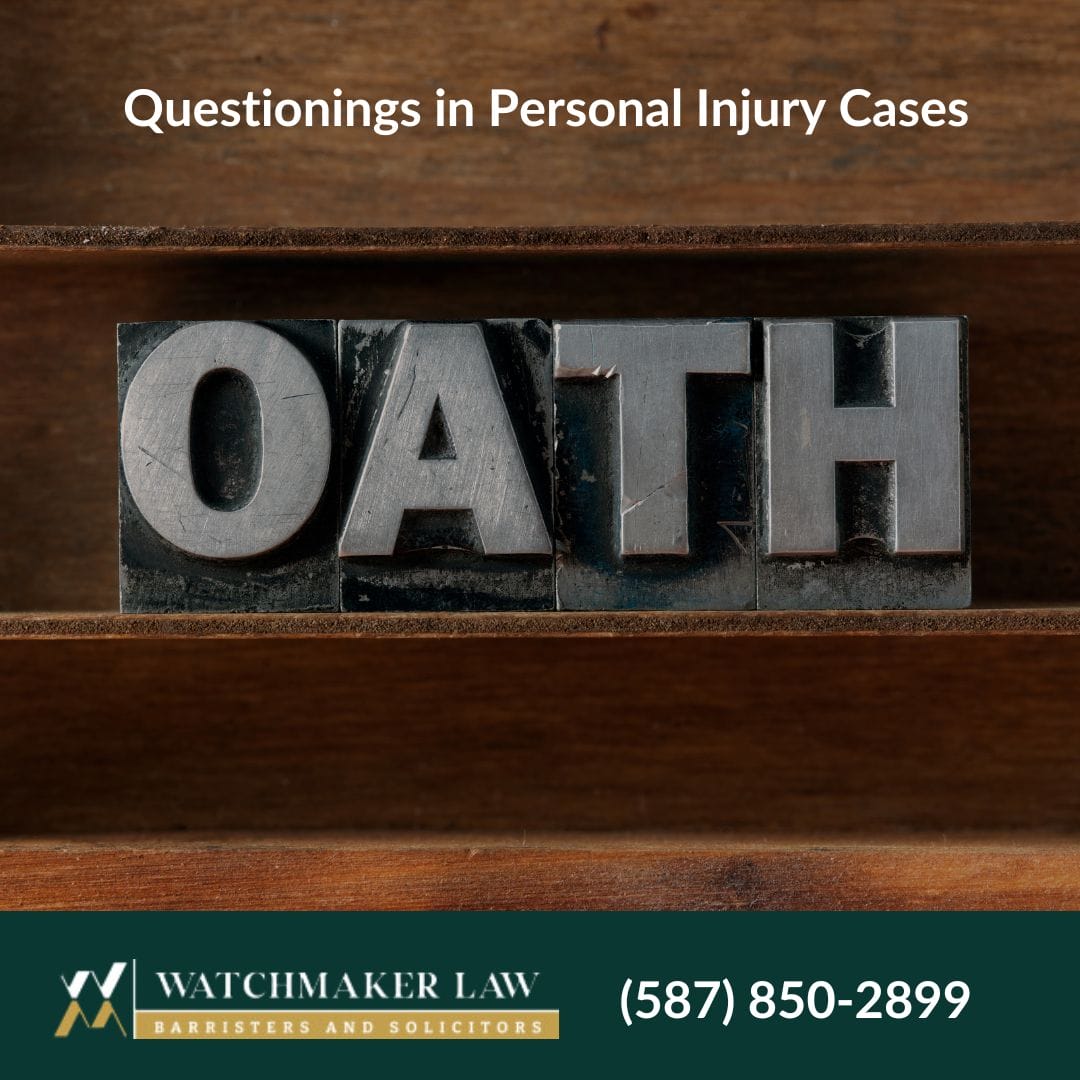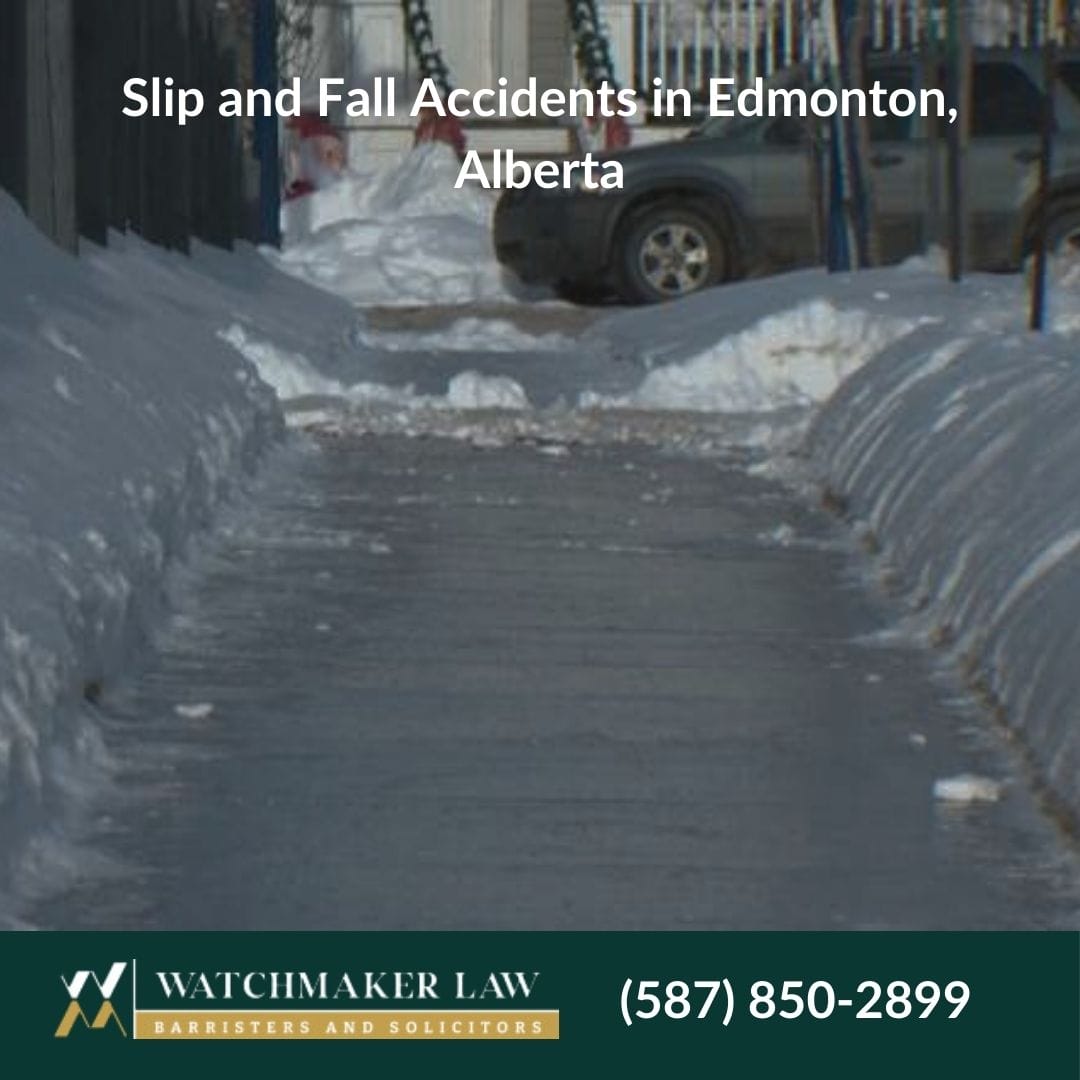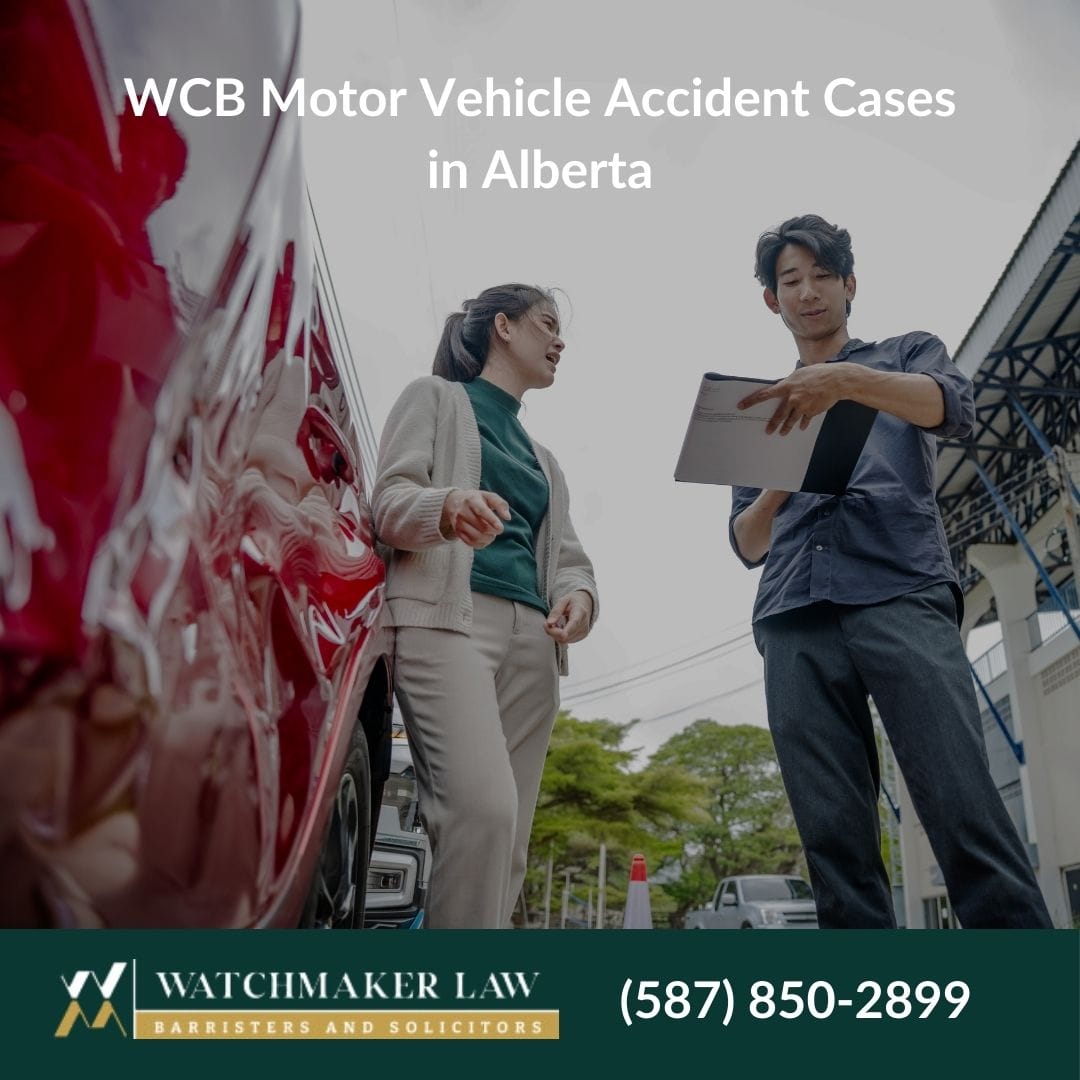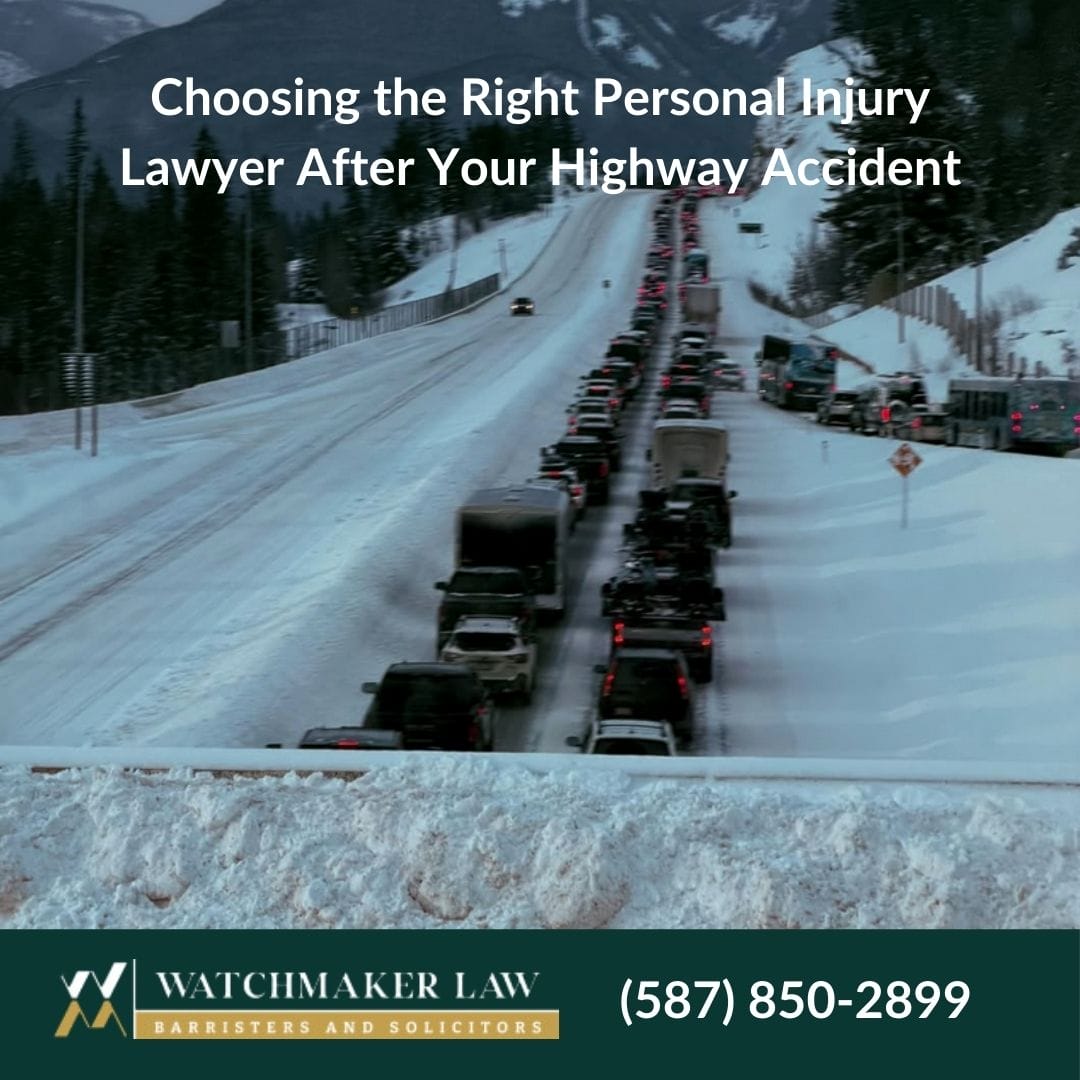Personal injury cases are often complex, involving various stages of litigation, evidence gathering, and legal proceedings. One crucial component of these cases is the process of questioning, which is integral to understanding the facts, evidence, and arguments that may affect the case’s outcome. In Edmonton, Alberta, personal injury claims are a significant aspect of legal practice, and understanding how questioning works can provide clarity for anyone navigating this challenging process. This article delves into what questionings are in a personal injury case, why they are important, and how Watchmaker Injury Law, founded by David Sowemimo, can support those facing personal injury claims.
What is Questioning in a Personal Injury Case?
In the context of a personal injury case, “questioning” refers to the process in which both parties (the plaintiff and the defendant) are asked to provide detailed answers under oath. These questions are usually part of the pre-trial discovery process and are designed to gather information that will help each party build their case. Questioning can take place in a variety of settings, including oral examinations (depositions), written questions, or affidavits.
During questioning, both parties have the right to ask each other questions related to the injury, the events leading up to the incident, medical treatment received, and other relevant aspects of the case. The goal is to clarify facts, test the credibility of witnesses, and obtain admissions or evidence that could strengthen or weaken a party’s position. While questioning may seem straightforward, it is a skillful and strategic process that requires a well-prepared legal team.
Types of Questioning in a Personal Injury Case
- Examination for Discovery (Oral Questioning): One of the most common forms of questioning in personal injury cases is examination for discovery. This is an oral examination where each party’s lawyer will ask the opposing party a series of questions under oath. This is typically done in the presence of a court reporter who records all the answers. The purpose of this examination is to gather evidence, clarify details about the accident, injuries, medical records, and any other relevant information that could affect the case’s outcome.
• Plaintiff’s Examination: The plaintiff (the person claiming injury) will be questioned by the defendant’s lawyer about their version of events leading to the accident, their injuries, and the impact of those injuries on their daily life. It is crucial for the plaintiff to be honest and clear during this process, as anything stated can be used in court later.
• Defendant’s Examination: The plaintiff’s lawyer will also question the defendant (or the defendant’s representative) about their involvement in the incident. The defendant’s version of events is critical in determining liability. This examination helps to establish whether negligence, recklessness, or intentional harm contributed to the plaintiff’s injuries. - Written Questioning: In some cases, written questions may be submitted to the opposing party. These written questions are formalized in a way that ensures all relevant information is obtained. The party receiving the written questions is required to provide written responses, which are then signed under oath.
- Expert Witness Questioning: Expert witnesses, such as medical professionals, accident reconstruction specialists, or economists, may also be subject to questioning. These experts play a pivotal role in explaining the nature of injuries, the long-term consequences, and the financial impact on the victim’s life. Questioning expert witnesses helps to clarify technical details and verify the expert’s qualifications and opinions.
- Interrogatories and Affidavits: Interrogatories are a set of written questions sent to the other party that must be answered within a specified timeframe. These are typically used to clarify specific facts. In addition, affidavits can be filed to verify the truthfulness of certain statements or claims made by either party.
Why Questioning is Important in Personal Injury Cases
Questioning serves several essential purposes in personal injury litigation, including:
• Clarifying Facts: It helps both sides understand the facts of the case more clearly. Through questioning, the court gains a more comprehensive view of the incident and the resulting injuries.
• Testing Credibility: Questioning allows each party to test the credibility of the other. It is a tool used to challenge any inconsistencies or contradictions in the opposing party’s statements.
• Identifying Weaknesses in the Case: Through careful questioning, attorneys can uncover weaknesses in the opposing party’s case, which may lead to settlement negotiations or influence how a case proceeds to trial.
• Preparing for Trial: Questioning ensures that both parties are well-prepared for trial. It allows both sides to review all the relevant information, anticipate arguments, and make informed decisions.
How Watchmaker Injury Law Can Help
Watchmaker Injury Law, led by David Sowemimo, is a firm with deep expertise in handling personal injury cases in Edmonton, Alberta. If you or a loved one has sustained an injury due to an accident, Watchmaker Injury Law can provide invaluable support throughout the questioning process and beyond.
1. Expert Legal Representation:
Personal injury claims can be overwhelming, especially when navigating complex legal procedures like questioning. Watchmaker Injury Law offers expert legal representation to ensure that your rights are protected, and that questioning is handled efficiently and effectively.
2. Strategic Preparation:
Questioning is a critical component of the litigation process, and how you respond can significantly affect the outcome of your case. Watchmaker Injury Law will provide strategic advice and guidance on how to prepare for examinations, ensuring you are ready for any line of questioning and can confidently present your case.
3. Negotiating Fair Settlements:
Often, questioning can reveal weaknesses or potential areas of compromise that lead to settlement discussions. Watchmaker Injury Law is skilled in negotiating fair settlements, ensuring that you receive the compensation you deserve without the need for a lengthy court trial.
4. Access to Resources:
Personal injury cases often require expert witnesses, medical evaluations, and accident reconstruction. Watchmaker Injury Law has access to a network of trusted professionals who can provide testimony and evidence that supports your claim.
5. Comprehensive Case Handling:
Personal injury cases involve much more than just questioning. Watchmaker Injury Law provides comprehensive case handling, from filing the claim to managing negotiations and representing you at trial, should the case go that far. With Watchmaker Injury Law, you have a team on your side that is committed to achieving the best possible outcome.
Conclusion
Questioning is a vital aspect of personal injury litigation in Edmonton, Alberta, as it allows both parties to clarify the facts and test the credibility of evidence and witnesses. Whether through oral examinations, written questioning, or expert witness testimony, questioning plays a crucial role in shaping the outcome of a case. For those navigating the complexities of a personal injury claim, having a knowledgeable legal team like Watchmaker Injury Law can make all the difference. Founded by David Sowemimo, Watchmaker Injury Law provides the experience, resources, and strategic support necessary to guide you through the questioning process and secure the compensation you deserve.
If you are facing a personal injury case in Edmonton, reach out to Watchmaker Injury Law to ensure that your case is handled with the utmost care and attention to detail.



